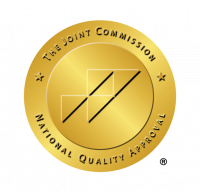Each year, millions of people go home for the Thanksgiving holiday. Many, especially college students, haven’t seen close friends and family in months. The night before the big feast, many people gather to catch up—and drink. So much so, that this evening has earned the nickname “Blackout Wednesday.”
There’s nothing wrong with wanting to get together with old friends—or sharing a drink or two. But with traffic accidents and excessive drinking becoming so common on this night, it’s important to go into “Drinksgiving” with a plan for staying safe. This is especially true if you’re in recovery, or cutting back on alcohol.
Here are some tips for enjoying Thanksgiving Eve without spending turkey day with a splitting hangover or getting into a dangerous situation on the road. We’ll also discuss how to navigate this day if you’ve quit, or want to limit your drinking.
What Is Blackout Wednesday?

In recent times, “Blackout Wednesday,” or “Drinksgiving,” has become one of the biggest drinking nights of the year—rivaling St. Paddy’s Day and even New Years Eve. It’s one of the busiest nights for the restaurant and bar industry, and many offer drink specials, or host events. “Blackout Wednesday” in Chicago, and the nearby suburbs, is especially well known.
But there’s a dark side to the festivities. A surge in holiday travel, combined with a large number of drunk drivers, has made the Wednesday before Thanksgiving one of the most dangerous nights on the road. Between 2012 and 2016 alone, over 800 people died from alcohol-related accidents over the four-day Thanksgiving holiday weekend.1
And aside from the threats posed by drunk driving, there are the usual risks associated with binge drinking. These include trips and falls, unsafe sex, fights, sexual assault, and alcohol poisoning. Drinking to the point of blacking out can put you and those around you in danger, and this is especially true on such a busy night. So, what’s the best way to look out for your well-being?

Schedule a private call with a Ria Health team member and we can help you get started.
Staying Safe The Night Before Thanksgiving
If you’re getting together with friends on Thanksgiving Eve, here are a few tips to stay safe, and avoid a nasty hangover on the following day:
1. Make a plan in advance
Decide ahead of time how much you want to drink, how late you want to stay out, and most importantly, how you will get home. Choose a meetup location and a social group that won’t pressure you to get too drunk, and have some strategies in place for sticking to your limits.
If you’re trying to reduce your drinking—or avoid alcohol entirely—have an exit strategy in case things get too intense, and don’t be afraid to use it. Even if people are offended, your safety is the most important thing, and true friends will respect that.
2. DON’T DRIVE
You should never get behind the wheel if you are drunk, but the night before Thanksgiving is an especially bad night to take a risk. Blackout Wednesday has become one of the worst drunk driving nights of the year.
On top of the danger to life and limb, there are also far more police on the roads. Minnesota reported 137 drunk driving arrests on Thanksgiving Eve 2017, for example—nearly triple the norm for a Wednesday.2 If you’re out late, even if you’re sober, call a rideshare or cab, use public transportation, or better yet, gather at the home of friends or family to avoid traveling at all.
3. Bring along an accountability buddy
If you want to limit your drinking the day before Thanksgiving, consider finding a friend with the same goal, and pledge to look out for one another. Discuss the plan in advance, and decide the best way to check in with each other as the night goes on.
This might include communicating your drink limits for the night, or staying sober enough to make sure your friend gets home safe. It’s also generally a good idea to be open about your drinking limits with as many people as possible. Some may pressure you to drink, but many others will remember and keep an eye out for you.
4. Avoid packed locations where you’ll be pressured to drink

Avoid specific “Drinksgiving” or “Whiskey Wednesday” events at crowded bars and restaurants. This is especially risky during COVID-19. But in general, this is also where the worst alcohol-related altercations are likely to take place. Not to mention that so many people binge drinking in one location can be a difficult trigger if you’re trying to cut back on alcohol.
Consider having your Thanksgiving Eve gathering at someone’s house to avoid big crowds of strangers. This also gives people safer options if they become too drunk to go home.
5. Pace yourself
If you’re drinking the night before Thanksgiving, consider spacing your drinks with water or non-alcoholic beverages. Stay hydrated, eat beforehand, choose drinks with lower alcohol content, and avoid having more than one drink per hour.
The more slowly you drink, the easier it will be to stick with the limits you set in advance.
6. Find another way to blow off steam
Finally, it’s well known that the holiday season can be stressful. Not everyone has an easy time with their family. On top of this, Thanksgiving break often comes right before finals for many college students. For some, overdrinking on “Blackout Wednesday” is a way to diffuse the pressure.
If this is true for you, consider some other stress management techniques. This could mean going for a good run the following morning, practicing meditation, listening to some relaxing music—whatever works for you. Remember: It’s often the act of talking with friends and socializing that really takes the pressure off. You may find that skipping the booze actually makes things better overall.
Read More 7 Ways to Keep Party Drinking Under Control
Celebrating the Holidays Sober
If you’re in recovery, or just don’t want to drink, nights like “Blackout Wednesday” can be particularly challenging. However, not drinking doesn’t mean you can’t enjoy getting friends together, or catching up with loved ones.
One way of managing is to organize your own sober gathering. Invite people over for mocktails or other festive food and drink, and put the focus on socializing.
If you’re attending someone else’s event, communicate to the host that you are sober. Consider bringing your own refreshments, and have a plan for turning down drinks if you are offered. It can get tiring to have this conversation over and over during the holidays, but having a few snappy one-liners can help.
Otherwise, stick to spaces that feel safe, have an exit strategy, identify some allies ahead of time, and above all, prioritize your recovery. Remember: If someone really cares about you, they won’t want you to risk your sobriety to make them happy. Take care of yourself, and keep in mind that it may get easier to navigate these situations as time goes on.
Getting Help For Problem Drinking
Whether you’d like to cut back on how much you drink on social occasions, or quit completely, the holidays can be a difficult time to avoid alcohol.
Fortunately, there are new ways of getting help. Online alcohol treatment is accessible from anywhere you may be—whether that’s your cousin’s holiday party, or your own home. Ria Health is one program that gives you access to expert medical care, weekly coaching meetings, anti-craving medications, and 24/7 support—all from a handy smartphone app.
Learn more about how it works, or schedule a call with a member of our team today.



